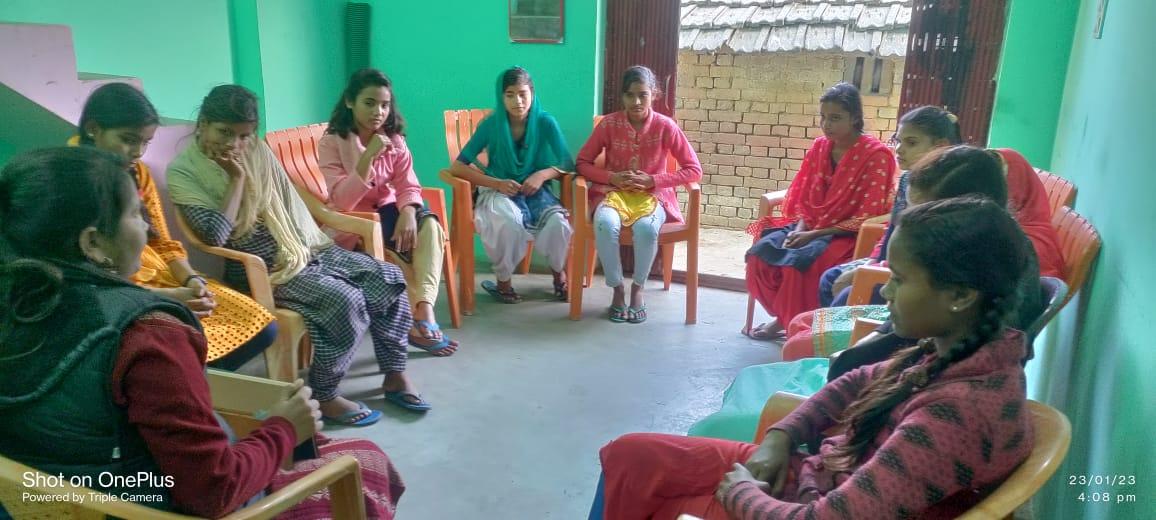Hausla-The Girls Power
| Donor/ Funding Source | NEG-Fire | Thematic Area | Youth Empowerment |
| Location | Uttar Pradesh, Maharajganj, Mithaura,15 G | Project Level | District; Block; Gram Panchayat |
| Covered | 576 adolescents of 13 years- 19 years covered. Key activities include- advocacy,implementation, skill development and capacitybuilding | Duration | 1st May, 2015-31st May, 2017 |
| Contract | 576 adolescents of 13 years- 19 years covered. Key activities include- advocacy,implementation, skill development and capacitybuilding | Total Budget | INR 41.84 lakhs |
Hausla-The Girls Power
Empowering Girls: Career Guidance, IT, and Life Skills (HAUSLA-The Girls Power)
The HAUSLA project, implemented by Srishti Seva Sansthan in Maharajganj District, aimed to empower 800 girls aged 14-18 through career guidance, IT, and life skills training. The project ran from May 1, 2015, to March 30, 2016, with a budget of ₹2,312,250.
The project made significant progress, with the baseline survey completed and community mobilization efforts resulting in regular meetings with 57 adolescent girl groups. Gender champion training was provided to 41 girls, and five-day camps were held. A district-level Kishori Mela was organized, and weekly classes were conducted.
The project achieved its objectives, including training 210 girls in life skills, establishing Avishkar centers for computer skills training, and providing career guidance and counseling to 220 girls. Linkages were established with block and district government stakeholders, and a district-level job fair was organized.
The project also focused on encouraging girls to continue formal schooling. Awareness campaigns were conducted with parents, and supplementary weekend classes were provided to 69 dropout girls. Meetings were held with parents, SMCs, and community members to promote girls' education.
The project reported significant progress on indicators, including life skills training, computer skills training, and livelihood scheme information. However, some challenges were encountered, including the risk of insufficient training for the third batch of girls.
Lessons learned from the project included the importance of skill development among staff, effective community meeting facilitation, and adolescent group engagement. The project demonstrated the value of empowering girls through career guidance, IT, and life skills training, and its impact is expected to be sustained through community-led initiatives.


